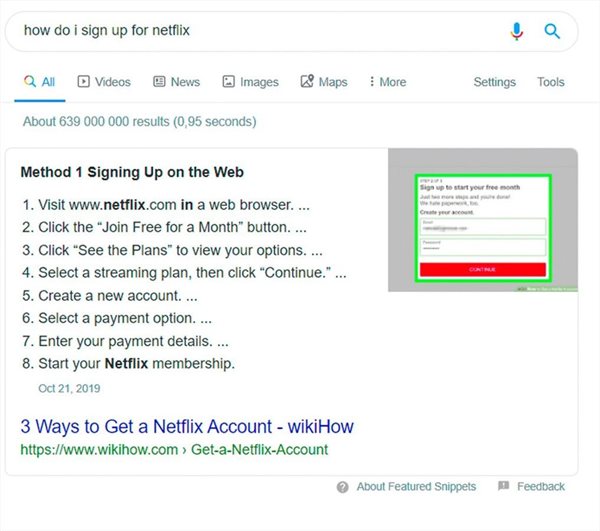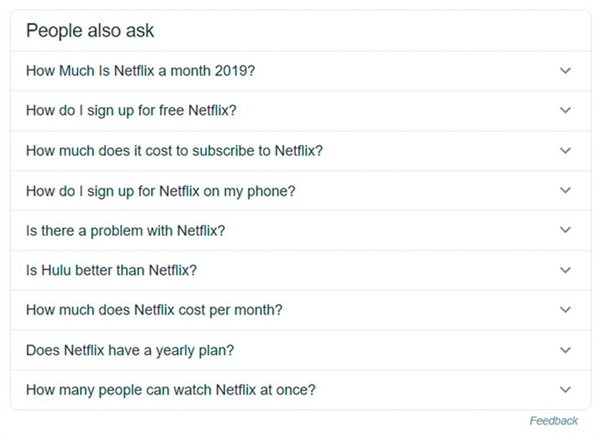When it comes to SEO, specialists need to keep up with the trends. In the SEO world, we need to be able to understand and preempt algorithm changes by Google so we can give the best recommendations to our clients.
Technology keeps advancing, and this affects how we use search engines – from the way we search to the types of search queries that people use. User behaviour has shifted from browsing the internet on desktop computers to mobile devices. And with that, more users are doing online searches using their microphones – also known as voice search.
So, how does voice search differ from how people searched previously? Well, these search queries are more conversational and question or discovery based; essentially, they are closer to full sentences than particular keywords typed in. Due to some of these changes in the way we search, Google has updated the way they try to understand queries through the latest BERT algorithm update. This is Google’s effort to understand natural, conversational language better, and in turn serve the user with better search results.
Is your website ready for voice search?
With the rise in voice and mobile search, how can you take advantage of voice search to maximise traffic to a website? If you’re a business executive or marketing professional trying to get the best performance for your client, or are simply interested in this new trend, here’s what you need to know when it comes to determining how ready your website is for voice-search traffic.
Tip 1: Is your website mobile-friendly?
Mobile-friendliness is an important ranking factor for Google, as more and more people are using mobile devices to search the internet. Here’s how to check whether your website is mobile-friendly:
- Can you see your website content on your phone easily or do you need to zoom in to view the content? If you need to zoom in, your website is not mobile-friendly
- Does the content on your website get cut off when viewing on a mobile device? Are links or buttons hard to click on? If so, your website is not mobile-friendly
A mobile friendly website is the first step in the right direction to targeting voice search, but as it is a ranking factor for Google, it is something your company must have.
Tip 2: Is your website fast or, more specifically, is your mobile experience fast?
User experience on mobile devices are important ranking factors. A fast website leads to better user experience, and in turn, if your website is slow on mobile, this indicates there is work to be done. Here’s how to determine whether your website is slow or not:
- Use Google’s website speed-testing tool to test your website’s speed. The results will indicate whether Google classifies your website as slow
- You can also use the tool to compare your website with a competitor’s
As Google wants to provide the best experience to the user, website speed is important. The speed-testing tool provides vital guidelines that you or a developer can use to make adjustments to the website. A faster mobile experience means better mobile rankings!
Tip 3: Do you create content for your website?
Content is king in Google’s world. If you’re not creating content, then you’ll have little chance of capitalising on this new trend. What do we mean by creating content? If you have a blog on your website, use this to develop content that targets voice-search terms. If you don’t, it’s worth determining how you or your developer can add content to your website.
Regularly adding content is good for voice-search traffic and SEO in general. More content on your website means a better chance for users to find it in search engines.
Tip 4: Do your store listings on Google get exposure for your brand and services?
Many voice or conversational search terms are best suited for location-specific queries, such as finding directions or looking up an address. You need to determine whether it’s easy enough for potential customers to find your stores in Google – here’s how:
- Use Google Maps to search for a generic service in Google or a question around a service/product you offer to check whether your listing shows up in Google Maps.
- Does your Google My Business (GMB) listing show all the correct information?
- Are you responding to reviews or comments on your listings?
Keep your GMB updated with fresh images and information, and by responding to reviews. If your GMB listing does not show up prominently in your search results, it’s worth doing some optimisation on these listings to expose your business to more mobile users.
Tip 5: Does your content get “featured” in Google for relevant searches?
Google serves answers to users’ queries directly in the search results – these are called featured snippets (as seen below).
Informational-based queries are most likely to show a featured snippet as a search result, for example: “How do I sign up for Netflix”. Here, Wikihow owns the featured snippet – when a user searches for this, they’re not likely to go directly to Netflix’s website, which is not ideal.
In this example, Netflix would do well to list the steps a user would need to take, and in turn would take over this featured snippet spot.
Does your company feature in these when a user asks a question about your brand, product or service, or is a different website being featured here? Tip 6 outlines ways to find these types of questions, which you can use to create content for and generate more traffic to your website.
Tip 6: Do you look at FAQs in Google’s “People also ask”?
Do you know what questions a user would ask about your brand? Are these being answered on your website? And how do you find these types of queries should you wish to answer them?
As voice searches are usually conversational-type search queries, you can find out what these are by simply asking Google a question. Once you do this, Google will prompt you with a section called “People also ask” (as seen below).
This is a great way to find questions people are asking about your brand, product or services. Take these questions and create content around them on your website. This way, featured snippets are more likely to be created out of your content and served first in Google’s results.
Staying ahead of the curve when it comes to search engine trends is more important than ever and neglecting these could negatively affect traffic volumes to your website. Use the tips outlined in this article to update your website to set you on the path to reaping the traffic rewards.






































